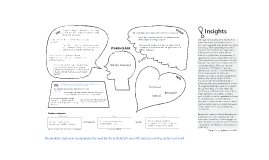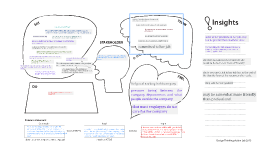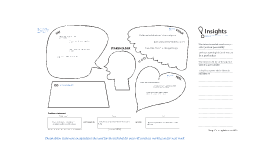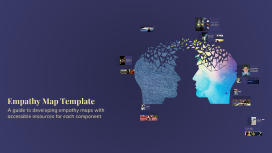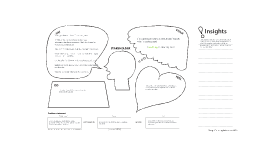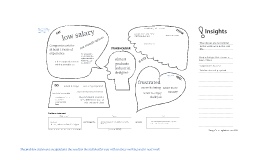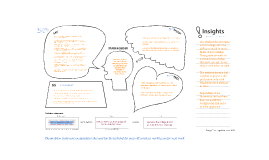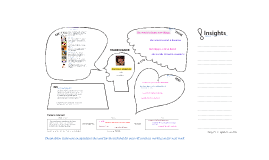Empathy Map Template
Transcript: Vibrant Colors and Engaging Designs Persona B is often drawn to bright, vibrant colors and engaging designs in marketing materials and social media. These visual elements not only catch their eye but also resonate with their interests and needs. Welcoming Environments See: Insights and Responses for Persona B They are attracted to open, welcoming environments such as parks, cafes, and well-designed spaces that enhance their social experiences. These settings contribute positively to their mood and interactions. Analytical Thought Process Guiding Values Occupying Concerns Persona B often processes information through critical analysis, weighing pros and cons before making decisions. They value logic and seek evidence to support their beliefs, leading to a thoughtful and deliberate approach to problem-solving. Core values for Persona B include integrity, innovation, and personal growth. These values drive their choices and influence their interactions with others, as they seek opportunities that align with their principles. Persona B frequently worries about societal pressures, career stability, and the impact of their decisions on their future. These concerns drive them to seek reassurance and validation from trusted sources. Storytelling Through Visual Content Persona B engages with content that is visually stimulating and tells a story, such as videos, infographics, and interactive media. These formats not only capture their attention but also facilitate better understanding and retention of information. Think: Insights and Responses for Persona B Section 2: Empathy Map for Persona B This section presents the empathy map for Persona B, which highlights their unique perspectives and experiences. Understanding these elements is crucial for tailoring approaches that resonate with their needs and aspirations. Trusted Influencers Persona B values the opinions of industry experts and thought leaders, often turning to them for guidance and inspiration. These individuals shape their preferences and decisions significantly. Social Circle Insights Hear: Insights and Responses for Persona B Feedback from close friends and family plays a crucial role in Persona B's decision-making process. They often rely on these insights to validate their thoughts and choices, particularly in significant life decisions. Benefits Sought Aspirations and Desires Success Metrics Persona A looks for products and services that provide tangible benefits, such as time-saving features, improved productivity, and enhanced user experience. They prioritize quality and effectiveness in their purchasing decisions. Persona A aspires to enhance their professional skills and achieve personal growth. They seek opportunities that allow them to learn and develop, driven by a desire for self-improvement and career advancement. Success for Persona A is measured through achieving set goals, receiving recognition for their efforts, and experiencing satisfaction in their personal and professional lives. They define success by the impact they make and the progress they achieve over time. Resonant Media Channels Gain: Insights and Responses for Persona A Persona B engages with various media channels, including podcasts, blogs, and social media, which reflect their interests and values. These media sources resonate deeply with them, often shaping their perspectives and actions. Common Phrases Persona B frequently uses phrases such as 'That's interesting!' and 'I see what you mean!' which reflect their openness to new ideas and perspectives. Key Messages Say: Insights and Responses for Persona B In discussions, Persona B often emphasizes the importance of community and collaboration, expressing thoughts like 'We can achieve this together!' or 'Collaboration is key!'. Feedback Style Feedback shared by Persona B tends to focus on constructive criticism and encouragement, with statements like 'I think we can improve this by...' and 'Great job on this, but have you considered...?'. Challenges Faced by Persona A Persona A encounters various challenges that hinder their progress, including time management issues and lack of resources. These obstacles often lead to feelings of being overwhelmed and stressed, impacting their overall productivity. Active Community Engagement Tech-Savvy Engagement Structured Daily Routine Persona B tends to be very active and engaged in community activities, attending workshops and social events regularly. This behavior not only reflects their desire to connect with others but also their inclination towards personal development. Persona B frequently engages with technology, utilizing various apps and devices for both work and leisure. Their interaction with products usually involves thorough research and reviews before making a decision, reflecting a thoughtful approach to their purchases. A typical day for Persona B includes structured routines, such as morning exercise followed by work hours, and in the evening, they often dedicate






